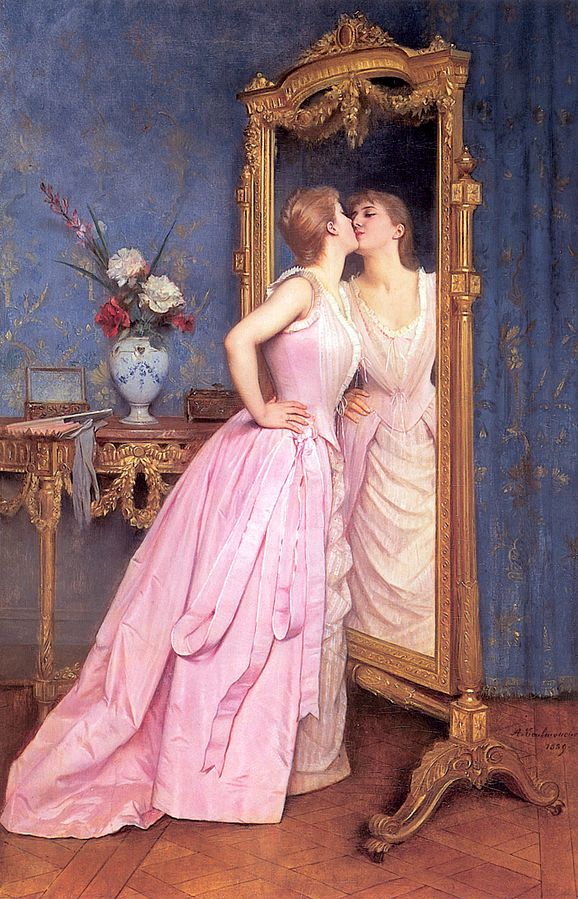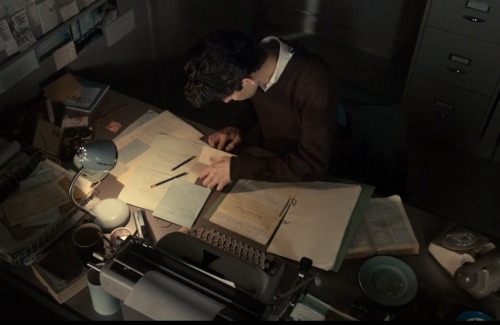The Lion, The Witch and The Wardrobe by C.S. Lewis is about a group of children destined to rule a land called Narnia. Before they can take up their thrones they must defeat a witch who has frozen over the land with the help of a lion. In the end, the children win their thrones, rule the land, and return home remembering the life they lived in Narnia. In both the book and the 2005 film adaptation, everyone gets a happy ending but the White Witch. She was an ambitious woman who got a bad name for simplicity wanting to have a rightful place among everyone else. She may have gone the wrong way about it but she still had traits that made her a leader whether or not she was a good person. The White Witch is an example of powerful women getting snubbed out of positions of power simply because they don’t fit into society’s box of how women leaders should act.
In Making Connections, one of the theories that is presented is that even though women are active in the workplace, women are still at an all time low in leadership positions. On page 203, researchers Blum and Smith find that “the rate of increase of women in management positions has been great, the proportion of women employed as managers is still quite small, increasing from 3.6 percent of all working women in 1970 to only 6.8 in 1980” (Blum and Smith 203). They also acknowledged that younger women are getting these leadership jobs but women still lack the education for leadership. Blum and Smith are saying that women do get leadership positions but the majority of the time, they still get passed up by either younger women or men in their company. Plus, the women who do get the leadership positions lack the education to actually lead. At the end of the day, women either have the skills but get the positions taken from them by other women younger lacking the leadership or men who may also lack the leadership skills.
The novel treats the White Witch as if a woman in power is a bad thing. They even go as far to say the reason she is like this is because she has the blood of giants and Lilith in her heritage. Lilith in Jewish folklore was Adam’s first wife who didn’t want to submit to him and left the garden of Eden to escape (Gaines par. 17-19). If anything, the White Witch should be respected as someone who has the blood of a woman who had the right to choose who she was going to be. Unfortunately, the novel doesn’t give that to the White Witch. Powerful women just like the White Witch are always robbed of leadership positions because they choose who they want to be.
In the novel, the White Witch has many quotes that are quite intriguing. One quote that stands out to me is, “Do you really think your master can rob me of my rights by mere force? He knows the Deep Magic better than that. He knows that unless I have blood as the Law says all Narina will be overturned and perish in fire and water” (Lewis 142). This quote shows how the White Witch has to explain what is rightfully hers as a person who is just as old as Aslan. She has to tell people the law of the land and they still refuse her, as if she can’t just turn them to stone. This quote represents how strong-willed women have to explain themselves for things they want, especially if that’s for a leadership position that should be rightfully theirs. As stated by Blum and Smith, younger women get leadership positions that they aren’t ready for. Lucy and Susan are not ready to be queens of Narnia but the White Witch has been a ruler for a long time whether she was nice about it or not. She had more power and ambition to be this ruler, unlike these young girls. So why does she get treated with such hate and disdain but these girls from a whole another land get to be leaders?
In the film, compared to the novel, the filmmakers were really set on making the queen be some heartless woman. In the novel, she seems more as a cartoonish evil queen but in the film, they just hammered into kids who watch this film that the White Witch was some “ice queen”. At 01:01:13, we see that she locks up Edmund as if he has done the worst crime in history while in the book she only ties him up when she is about to kill him against a tree. The movie really wanted to make this ambiguous yet cartoonish novel White Witch into some monster of a woman because she doesn’t bow to Aslen’s every command. The way the film portrays the White Witch is the same way society portrays ambitious women in film, as cold, heartless monsters with only careers on the mind.
At movie markers 01:18:22 through 01:18:24, the White Witch violently attacks Edmund after he tries and fails to protect the fox. That scene really stood out to the rest of the scenes we see with the Witch and Edmund. Like other times, she is just hostile towards him or her minions but this was the first time we see her actually put her own hands on him. The reason why this correlates with my second thesis is because it shows how they made her a lot more violent and aggressive as a villain. In the novel, she’s violent not to a point where she’s laying hands on Edmund, until she is about to kill him. They went as far to, again, have her lock him up in the same prison as Mr. Tumnus. The novel made us kind of laugh at her by portraying her as a caricature but the movie just made us full on scared, either of encountering her or becoming her. The film felt like they were offering a cautionary tale to kids, especially girls, that we don’t want to be her or end up like her. Meanwhile, boys receive the message that women, like the White Witch, should be put down to “tamed.” At the end of it all, they made an ambitious woman scarier then she needed to be.
The film overall gave the audience a warning to not be like the White Witch. They portrayed her as this woman who, admittedly is evil, but still doesn’t get the same rights as everyone else. We see that she follows the laws but instead of getting Edmund, she gets Aslan who yells at her for even confirming that he was going to follow through with their agreement. That just shows that no matter what side strong women, like the White Witch, are on, they will always get put down and get “tamed.” The film also tells girls that being like Lucy or Susan, girls not ready to rule, will make them more acceptable to society as they get happy endings. It warns girls if they have traits like the White Witch, they will be “beaten” by men and seen as “dead” and useless to a patriarchal society. In the end, the film showed that strong, forward, and driven women like the White Witch will always be snubbed or overlooked because they don’t play by society’s rules.
Work Cited
Adamson, Andrew, director. The Chronicles of Narnia: the Lion the Witch and The Wardrobe. Walt Disney, 2006.
Blum, L., and V. Smith. 1988. Women’s mobility in the corporation: A critique of the politics of optimism. Signs vol. 13, no. 3.
Gaines, Janet. “Lilith.” Biblical Archaeology Society, 17 Nov. 2019, www.biblicalarchaeology.org/daily/people-cultures-in-the-bible/people-in-the-bible/lilith/
Lewis, C. S. The Lion, The Witch and The Wardrobe. HarperCollins, 1978.

